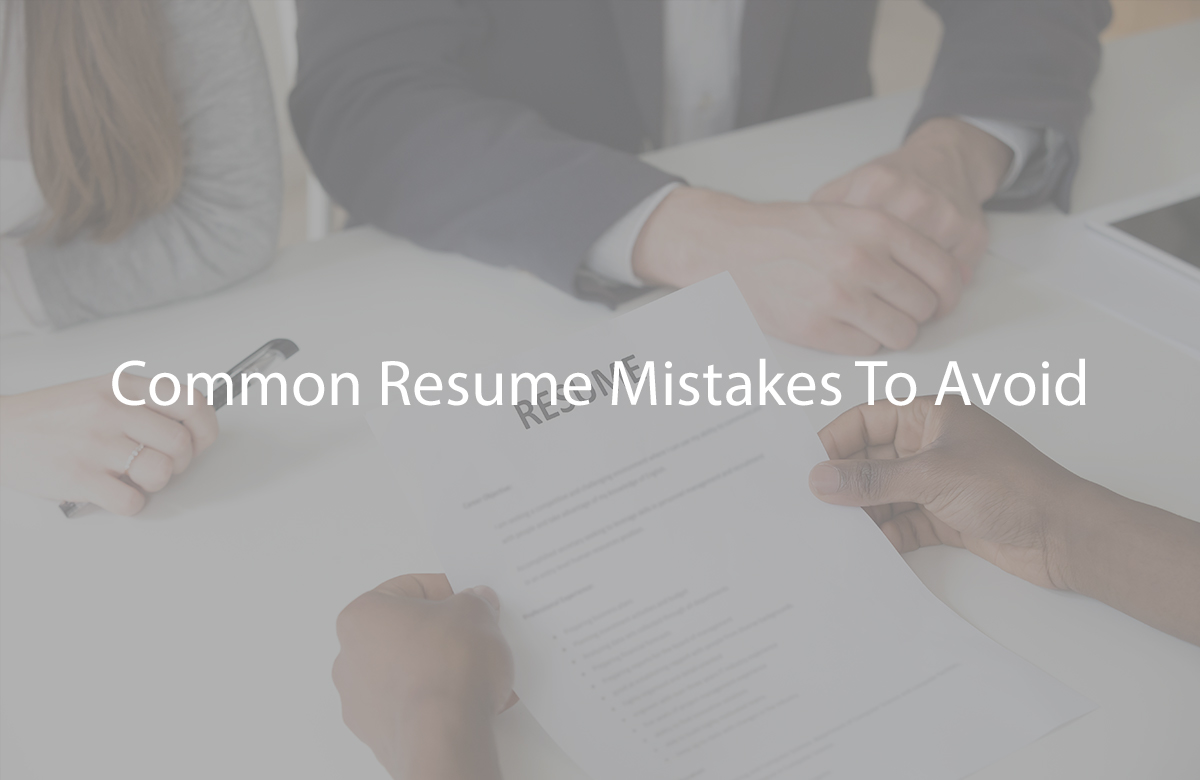
Common Resume Mistakes To Avoid
Avoiding common resume mistakes is crucial to create a professional and effective resume that stands out to employers. Here are some common resume mistakes to steer clear of:
Spelling and Grammar Errors: Typos and grammatical mistakes can make you appear careless and unprofessional. Proofread your resume thoroughly or use a grammar-checking tool.
Lengthy Resumes: Keep your resume concise. A standard resume is typically one to two pages in length. Avoid overly long resumes that include unnecessary details.
Vague Objective Statements: An outdated or generic objective statement doesn’t add value. Instead, use a clear and focused summary or professional profile that highlights your qualifications and goals.
Missing Contact Information: Ensure your contact information, including your phone number and email address, is up-to-date and prominently displayed.
Unprofessional Email Addresses: Use a professional email address for job applications. Avoid using humorous or personal email addresses.
Generic Resumes: Tailor your resume for each job application. Customize it to match the specific requirements and keywords mentioned in the job posting.
Listing Responsibilities, Not Achievements: Focus on your accomplishments and contributions in each job rather than just listing your responsibilities. Use quantifiable achievements whenever possible.
Lack of Keywords: Many companies use applicant tracking systems (ATS) to screen resumes. Include relevant keywords and phrases from the job description to increase your chances of passing ATS scans.
Inconsistent Formatting: Ensure consistent formatting throughout your resume. Use the same font, style, and formatting for headings, dates, and bullet points.
Overusing Buzzwords: While some industry-specific terms are appropriate, avoid overusing jargon or buzzwords that may not add real value to your resume.
Including Irrelevant Information: Focus on including only information that is directly relevant to the job you’re applying for. Omit unrelated skills or experiences.
Gaps in Employment: Address employment gaps by briefly explaining them in your cover letter or on your resume. Show what you were doing during those periods, such as freelance work, volunteering, or training.
Listing References: Don’t include references on your resume. Instead, state “References available upon request.” Provide references separately when requested.
Excessive Personal Information: Avoid including personal details such as age, gender, marital status, or a photo. These details are typically not relevant and can lead to bias.
Negative Language: Use positive language throughout your resume. Avoid any negative statements about former employers or experiences.
Failure to Quantify Achievements: Whenever possible, quantify your accomplishments with specific numbers or percentages. This adds credibility to your claims.
Inadequate Contact Information for References: If you do mention that references are available upon request, make sure you have their contact information ready and inform your references in advance.
Misrepresenting Information: Be honest and accurate in your resume. Misrepresenting your qualifications or experiences can lead to serious consequences if discovered.
**Lack of Proof: **Include evidence to back up your claims, such as links to online portfolios, examples of work, or certifications related to your skills.
Using a Generic File Name: When saving your resume, use a descriptive and professional file name, such as “JohnDoe_Resume.pdf,” rather than a generic name like “resume.doc.”
By avoiding these common resume mistakes, you can create a more compelling and error-free document that improves your chances of impressing potential employers and securing interviews.
